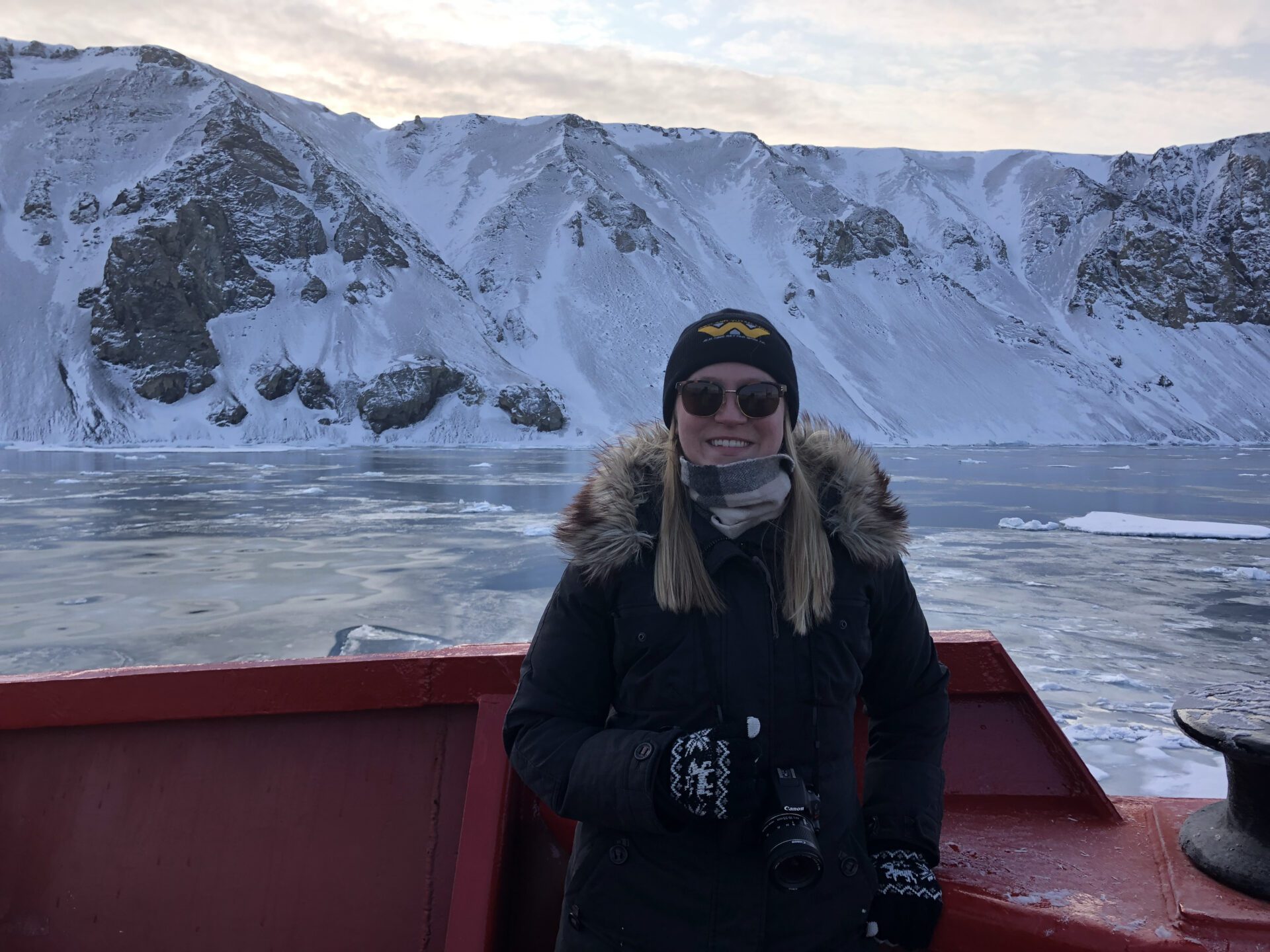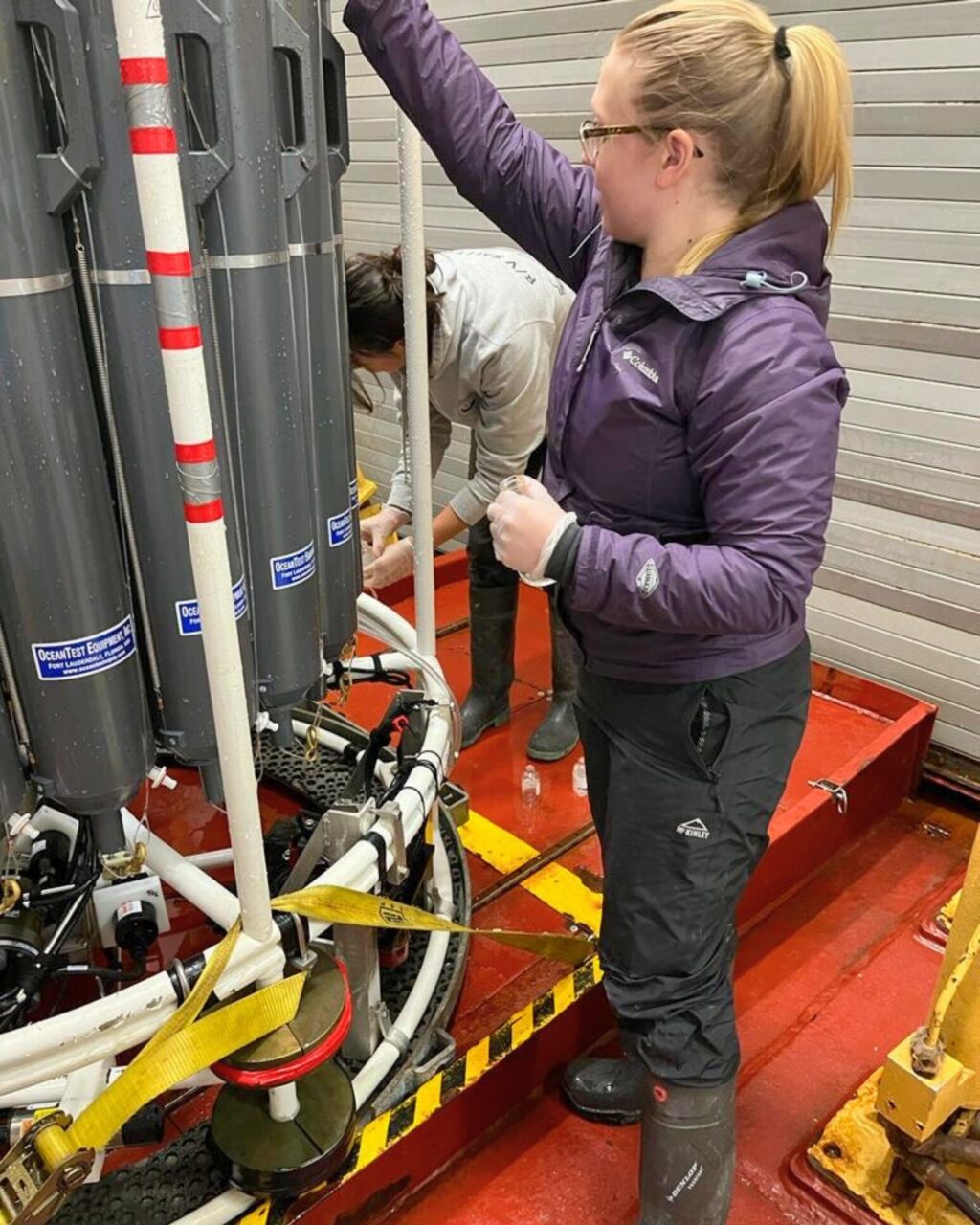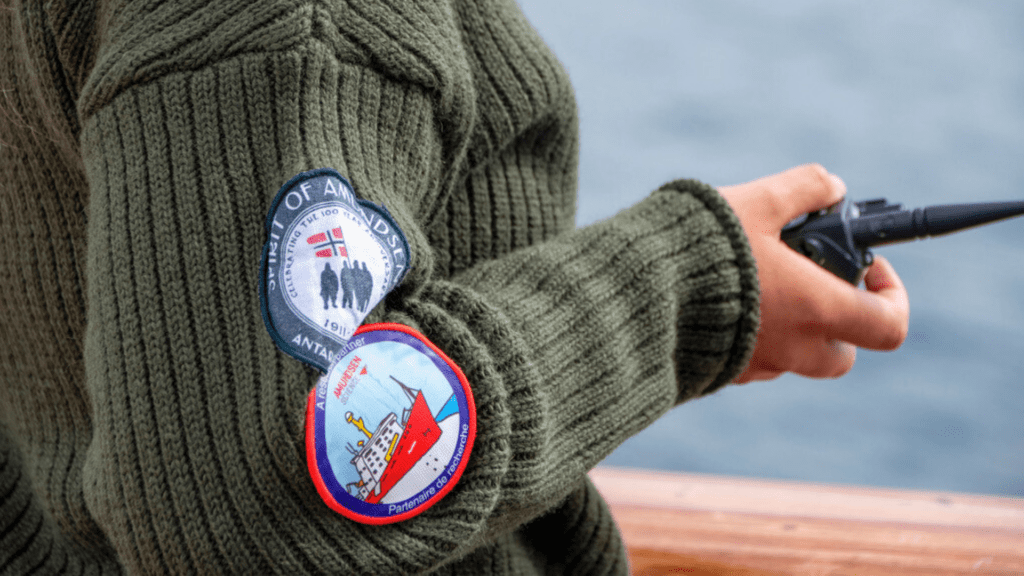In this edition of Spotlight on a Scientist, we feature Zoe Walker, a lab and field technician at the University of Calgary whose work supports multiple collaborative Arctic projects. With a background in geography and a passion for understanding climate processes in cold environments, Zoe works with Dr. Brent Else examining gas exchange in both marine and freshwater environments in the Canadian Arctic, including work on the marine carbonate system, dissolved methane, and stable water isotopes. She has contributed to several Arctic initiatives aboard the CCGS Amundsen, embodying the curiosity, dedication, and teamwork that define Arctic science.
Spotlight on a scientist – Zoe Walker

What is your research focus, and what projects are you working on aboard the Amundsen?
My research focus began with Arctic lakes- I examined the seasonal accumulation and emission of carbon dioxide and methane in lakes surrounding Cambridge Bay (Ikaluktutiak), Nunavut.
After I finished my master’s degree, I was hired as a lab and field technician. My role shifted to support other students complete their projects, both logistically from afar, as well as going into the field with them. Many of these projects have been aboard the Amundsen.
I was first aboard the Amundsen on leg 3 in 2023 to support a collaborative Arctic Net project. More recently, I was aboard leg 5 of 2025 to assist with FoxSIPP-2 and the ongoing research associated with that project. Since the Amundsen is a collaborative research vessel, my main responsibility is collecting and analyzing stable water isotopes (δ18O and deuterium) to share with other research groups.
What motivated you to pursue this field of study?
I come from the department of geography, which is often chalked up to people who study maps and know all the capital cities (plot twist – most of us do not). I remember my first geography class introduced me to meteorology, geomorphology, dendrochronology and oceanography. I thought it was amazing, and continued to take courses until I ended up changing majors. I became fascinated with climate change in cold environments and was able to find a project I found interesting, which lead me to graduate school.
How has your experience on board been so far? Is there a memorable moment you’d like to share?
My most memorable experience was the community visit to Igloolik. We had such a wonderful turnout, with lots of important questions and conversations between residents and scientists. My work as a graduate student as well as a technician has given me the opportunity to visit the community of Cambridge Bay (Ikaluktutiak) four times. Each community I am able to visit is a gift that I cherish deeply.
From your perspective, what are the main challenges or key learning of doing research on the ship?
As with most fieldwork, weather is often our biggest challenge. This past cruise we had a number of weather challenges, including rough seas coupled with a search and rescue call. Since our group collects water samples (team rosette!) we are often faced with multiple stations over a short period of time, so the other challenge we face is sleep deprivation. That said, one benefit of working in Foxe Basin is how shallow most of the stations are!
Zoe’s work aboard the Amundsen highlighted the essential role of collaboration, field logistics, and community engagement in Arctic science. Through her contributions to gas exchange studies, water isotope sampling, and multi-team support, she helped deepen our understanding of northern environments and the rapid changes they face. Her experience reminded us that Arctic research is not only about data, but also about people, places, and the meaningful connections built along the way.









